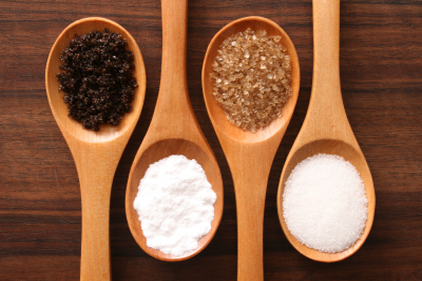Soda and other sugary drinks have unsafe levels of high-fructose corn syrup or other added sugars, a consumer group says, and it is urging the government to determine a safe level to reduce Americans' "dangerously high sugar consumption."
The Center for Science in the Public Interest filed a petition with the Food and Drug Administration urging the agency to identify a safe level for added sugars in beverages.
The petition is supported by a letter signed by 41 nutrition scientists and physicians and the public health departments of 10 major cities including Boston, Los Angeles, Philadelphia and Seattle.
A diet high in high-fructose corn syrup and added sugars is linked to an increased risk of obesity, type 2 diabetes, heart disease, gout and tooth decay, says CSPI executive director Michael Jacobson. About two-thirds of adults and one-third of children in the USA are overweight or obese.
On average, people in this country are downing 18 to 23 teaspoons of added sugars a day -- about 300-400 calories, he says. There are about 355 calories in 22 teaspoons. Every teaspoon has about 16 calories.
"Sugary beverages provide almost half the sugars we consume," Jacobson says. A typical 20oz. bottle of soda has about 16 teaspoons of sugar from high-fructose corn syrup, he says.
The American Heart Association recommends no more than 9 teaspoons of added sugars a day for men and no more than 6 teaspoons of added sugars a day for women.
Added sugars come in the form of table sugar, brown sugar, high-fructose corn syrup (in soda), maple syrup, dextrose, honey and molasses. Added sugars make their way into lots of processed foods and beverages, from soda, sweet tea and lemonade to energy drinks and sports drinks.
The FDA classifies high-fructose corn syrup, sucrose and other added sugars as "generally recognized as safe," Jacobson says. "But at these levels they are being used, these ingredients are not safe. They are harmful. The FDA has an obligation to review the safety consumption of sugars and set safe levels."
Although the petition did not propose a specific safe level and there are "no magic numbers" for that, Jacobson says several health agencies have identified 2.5 teaspoons (10g) of added sugars as the safe limit in a healthier drink.
"We're not asking for a ban. We are not saying they are a poison," he says.
Beverage companies can use natural non-caloric sweeteners and sweetness enhancers instead, Jacobson says.
The American Beverage Association, an industry group, said in a statement that "Everyone has a role to play in reducing obesity levels, a fact completely ignored in this petition. This is why the beverage industry has worked to increase options and information for consumers. Today about 45% of all non-alcoholic beverages purchased have zero calories and the overall average number of calories per beverage serving is down 23% since 1998."
Plus, the group adds, "Americans are consuming 37% fewer calories from sugar in soft drinks and other sweetened beverages than in 2000."
The consumer group's petition also says the FDA should encourage the food industry to voluntarily reduce the added sugars in baked goods, breakfast cereals and frozen desserts.
The group wants a separate line for "added sugars" on the Nutrition Facts label on products.
Plus, the consumer group is calling for an education campaign. "Consumers should and could be doing a lot more for their own health," Jacobson says. "They should look for foods lower in sugar; drink water instead of soda and not eat a one-pound serving of cake."
Barry Popkin, a nutrition professor at the University of North Carolina-Chapel Hill who signed the letter of support for the petition, says that "setting standards and limits on added sugar levels would make a significant impact on the health of Americans, 40% of whom consume at least 400 calories a day of added sugar from beverages."
Tamara Ward, a spokeswoman for the FDA, says when a petition is filed, the agency reviews it and responds directly to the petitioner.
